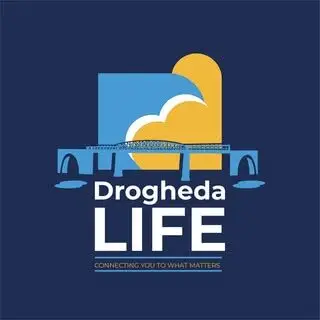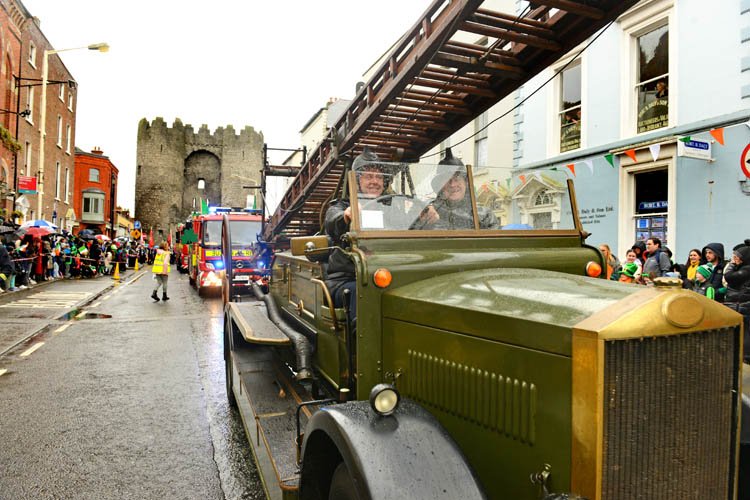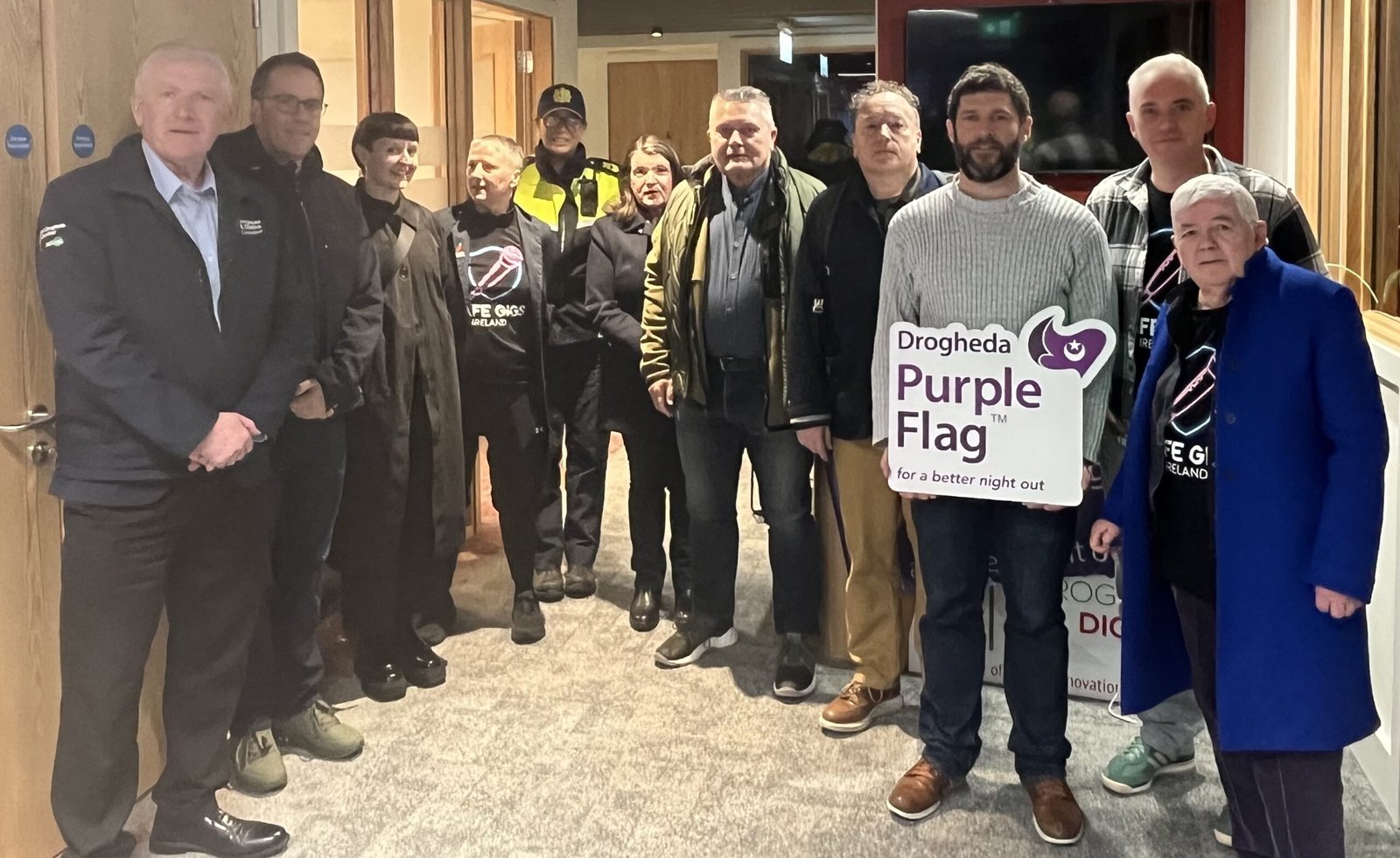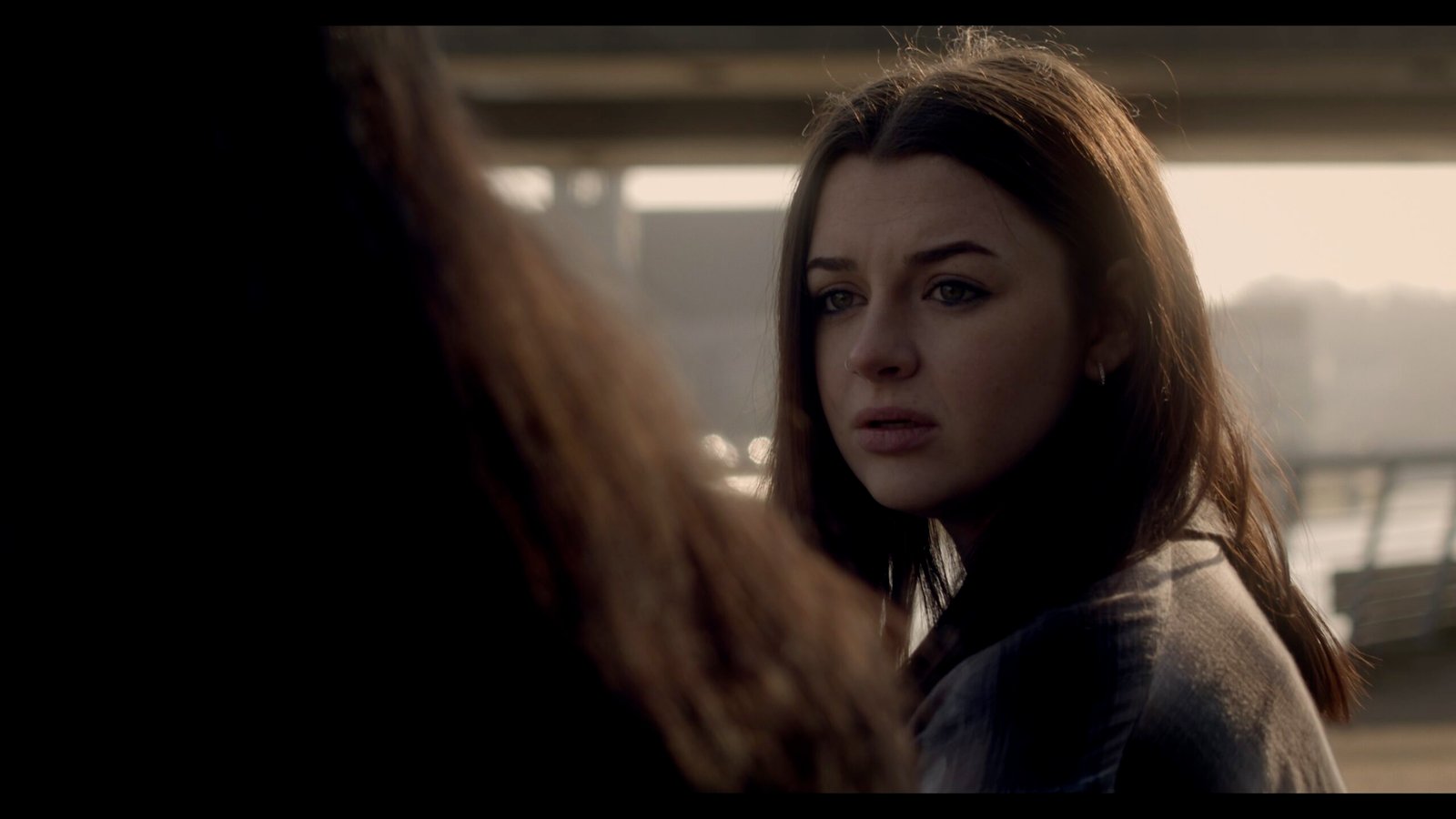By Sean Collins
The sight of the fully restored Merryweather fire engine, the only green fire engine in the world, taking part in the St. Patrick’s Day Parade more than 80 years after it was first purchased by Drogheda Corporation, was one of the highlights of the day. Great credit to all concerned in Louth County Council for the excellent restoration work.
In the late evening of Wednesday, the 9th January 1936, a fire broke out in the premises of Connolly Bros in Shop St. By the time it was brought under control the next morning, six shops and storage areas, had been completly destroyed.
The Drogheda Fire Brigade at the time consisted of a wheeled hand pump which proved totally inadequate to deal with such a large blaze. Appeals for help were sent to Dundalk and Dublin brigades and the new Dundalk Fire engine arrived in the early hours and helped bring the fire under control and eventually extinguished it. There was no response from Dublin. Three premises owned by Connollys and the adjacent pork butchers and fruit shop were totally destroyed.
In the weeks following the fire there were many calls for the Corporation to provide a proper fire service for the town equipped with a fire engine and, after much public pressure, the Drogheda Corporation tendered for the supply of a petrol propelled fire engine.
In July 1936 a fire engine was ordered from Merryweather & Sons in London who built steam fire engines and steam tram engines for brigades around the world. The new fire engine cost £1,375 which is the equivalent of approximately €140,000 in today’s currency.
It wasn’t all plain sailing through. When Corporation members were told that import duties of £475 would also be levied, some members were against paying it. One Councillor even suggested the town should go back to the old hand cart pump rather than pay the levies! Good sense prevailed however, and the new fire engine arrived in Drogheda on 29th May 1937.
The crew were Drogheda Corporation employees. Once a month ten men did one day training sessions on the use of the fire engine. In 1941, in a response to an appeal for help from bomb blitzed Belfast the Drogheda Fire Service along with Dundalk and Dublin travelled North to help.

Mr. Joe Shiels, writing to History Ireland in 2011, commented;
“My own involvement in these events stems from the fact that my father, John Sheils, was the first officer and driver of the engine that went to Belfast in April and May 1941. The other crew were Superintendent Dan Lennon, Firemen Michael Moore, ‘Synnott’ Craven, Peter Farrell, Paddy McEnaney, Sammy Gallagher and Paddy Harrison.
“These men were employees of Drogheda Corporation and only part-time firemen. When they were called to fight a fire, their Corporation employment ceased for the duration and they were paid the fireman’s rate. My father complained that this was less than their normal rate of pay.
“The engine was a Merryweather, the most common in use at that time. Interestingly, it was painted green, the only engine in the world so painted, I suspect. This came about because sometime TD and frequent mayor of Drogheda Laurence (Larry) Walsh insisted that his town’s engine should not be painted in a livery he associated with the British Empire!
“He took the same view of the Corporation’s ceremonial robes. My father recalled that not all of the citizens of Belfast were enthusiastic about the arrival of the green engine!”
“The trip to Belfast took two and a half hours, which averages out to approximately 30mph/45kph. Obviously this was a much longer journey than was usually undertaken and not without its hazards. The roads in April were frosty and the engine’s heavy ladder and the pumping gear loaded to the rear made it difficult to control, especially when cornering. My father and Superintendent Lennon sat in an open cab, protected only by a windscreen. The other men sat on the outside of the engine, no doubt holding on to the ladder for dear life. All were undoubtedly cold and uncomfortable.
“I am uncertain of the duration of their stay in Belfast but I think they returned late the next day. They worked at an air-raid shelter that had taken a direct hit. My father was a veteran of the First World War, but even he spoke of the trauma he suffered as a result of this work among the mangled remains, especially those of children.
“It must have been much worse for the other men, who had had no preparation for what awaited them in the bombed city. There is also a report that Sammy Gallagher was injured in the course of their work. It is to be noted that the plaque unveiled by Mayor Bell contains the names of the public representatives who were present at its unveiling but not of the firemen whose bravery occasioned it. I hope to remedy this omission in the near future.—Yours etc.,’






